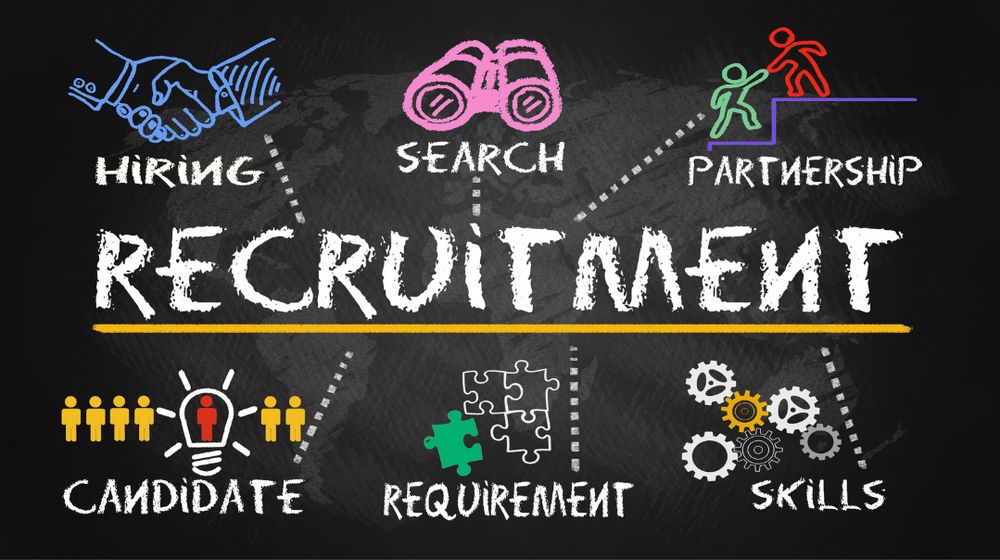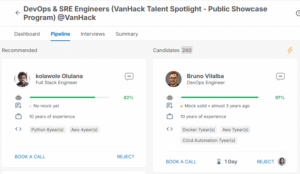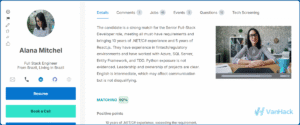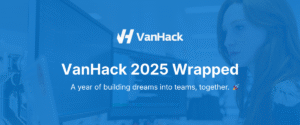For Series A to C startups, finding skilled engineering talent is crucial during rapid growth. You need a hiring strategy that prioritizes speed, quality, and cost without cutting corners. Traditional methods often can’t keep pace when you’re scaling fast and need senior engineers on short notice. This guide walks you through selecting a recruitment agency that supports your growth goals and avoids common hiring delays. Start recruiting with Vanna now to streamline your engineering hires.
Key Points and Decision Framework
Choosing the right recruitment agency starts with understanding what sets talent acquisition apart from basic recruiting. Talent acquisition builds long-term team strength, while recruiting fills immediate gaps. For senior roles like staff or principal engineers, assessments and pay structures vary widely by level.
Global hiring adds layers of complexity with equity and cash compensation. Candidates in different regions weigh risks and taxes differently, so your strategy must adapt. Technical evaluations should test both deep knowledge and practical skills, while cultural fit ensures new hires mesh with your startup’s vibe and team.
Deciding whether to build an in-house team or partner with an agency depends on your hiring volume, HR skills, time limits, and overall costs. If you’re hiring fewer than 10 engineers yearly, an external partner often works best. For high-volume or specialized needs like global relocation, outside expertise usually offers better results.
Understanding the Tech Talent Market
The landscape for engineering talent has shifted. Demand for senior roles in AI, cloud computing, and cybersecurity remains strong in 2025. Big Tech offers hefty pay, startups compete with equity and growth, consultancies focus on projects, and remote-first firms tap global pools.
Recruitment options include executive search for top roles, niche technical recruiters for specific skills, platforms with global candidates, and in-house teams for custom hiring. Remote work, AI matching tools, and rising pay due to talent shortages have reshaped the market.
Average tech salaries hit $112,521 in 2025, with engineers earning more for AI expertise. This, paired with global access, means old-school methods won’t cut it for startups aiming to scale.
Generic job boards like LinkedIn flood you with applications but waste time on screening. Referral programs help with fit but don’t scale. General recruiters often lack the depth to evaluate senior tech talent, leading to quality issues that specialized agencies can solve.
Weighing Your Hiring Options
Deciding between building an internal team or partnering externally goes beyond cost. Hiring in-house recruiters costs $80,000 to $120,000 yearly, plus benefits and tools. Each recruiter handles 15 to 25 hires annually, so rapid scaling might require several.
External options vary. Executive search firms charge 25 to 35% of a hire’s first-year pay, specialized recruiters take 20 to 25%, and subscription services can lower costs for frequent hiring.
Delays in hiring carry hidden costs. Senior IT roles often pay $100,000 to $120,000 or more, so each delayed month impacts productivity and market edge.
Scaling teams fast also means managing change. New hires should align with your culture while adding fresh ideas. Your hiring process itself shows candidates your values and efficiency, affecting whether they join or stay.
Track success with metrics like hire quality via performance reviews, speed of hiring, offer acceptance rates, and team integration over time. Top startups monitor these to get the most from their recruitment efforts.
VanHack: Your Partner for Tech Hiring
Meet Vanna: AI-Driven Recruitment
VanHack’s subscription model with Vanna, an AI recruiter, costs $3,000 monthly for unlimited hires. This saves money for growing startups. For instance, hiring seven engineers might cost $9,000 with Vanna versus over $100,000 with traditional fees.
Vanna’s AI matches job needs with candidate skills from a pool of over 500,000 global tech pros. It delivers a shortlist of 3 to 5 pre-vetted candidates, speeding up hiring by focusing on the best matches.
Thorough Candidate Screening
VanHack screens candidates at multiple levels. Video intros let you quickly check communication and English skills, helping gauge fit without early interviews.
Coding tests, partnered with platforms like Woven, provide hard data on technical ability. Scores and benchmarks on profiles confirm coding skills before deeper interviews.
AI-driven technical interviews, through a tool with an AI named “Anna,” last 30 minutes and are asynchronous. Recruiters get videos, transcripts, and objective scores, revealing problem-solving and communication skills without needing senior engineers early on.
Support for Global Hiring and Moves
VanHack simplifies international hiring with a dedicated Global Mobility team. They handle visa processes, worth about $5,000, plus housing and school logistics for candidates and families, all included in the price.
Candidates can often work remotely during visa waits, keeping projects moving. After relocation, VanHack connects hires through local groups like “VanHackers in Toronto” on WhatsApp, aiding integration and networking.
Direct Employment Model
With VanHack, you hire candidates directly, paying a one-time fee or the Vanna subscription. Unlike outsourcing platforms that take ongoing cuts, this model builds direct ties between you and your hires for better alignment.
Are You Ready to Hire Strategically?
Assess your hiring setup by reviewing current processes and strategic goals. If your approach is unstructured, an external partner can add method and focus. If you have systems in place, look for extras like global support or better assessments.
Identify key players like founders, CTOs, or HR leads who decide on hires, plus those handling daily tasks. Clear roles and communication keep things moving during fast-paced hiring.
Prioritize roles by their impact on business, urgency, and value. Infrastructure and customer-facing roles often come first, while internal tools can wait until core needs are met.
Align hiring timelines with product goals, funding rounds, and market chances. Series A and B startups often face investor pressure for quick growth, making efficient agency partnerships vital. Find top talent to meet those tight deadlines.
Common Mistakes to Dodge in Hiring
Even strong teams make errors that slow recruitment. Relying too much on generic job boards creates a flood of applications, draining time on sorting rather than strategy.
Skipping cultural fit checks can lead to hires who excel technically but clash with startup speed or teamwork needs. Missteps here cost more than just rehiring; they disrupt teams and output for months.
Focusing only on per-hire cost misses bigger expenses like delayed starts or turnover. Cheap hires who leave quickly often cost more than quality recruitment that lasts.
Using general recruiters instead of tech specialists risks weak skill assessments and poor candidate experiences. Senior engineers want recruiters who get their field, making niche expertise key.
Overlooking global hiring challenges can sink expansion plans with visa delays, legal hurdles, and integration issues if you lack proper support.
Answering Your Hiring Questions
How Long Does Hiring a Senior Engineer Take?
Hiring timelines for senior engineers depend on role level, skills needed, and market conditions. With a specialized agency, plan for 4 to 6 weeks from posting to offer acceptance. This covers 1 to 2 weeks for sourcing, 2 to 3 weeks for interviews, and 1 week for offer talks.
VanHack’s Vanna speeds up sourcing with pre-vetted shortlists, cutting early delays. Candidates are already assessed with tests and video intros before your interviews begin.
Highly niche roles, leadership positions, or international hires with visa needs can stretch timelines. Clear job specs, fast interview loops, and strong offers can shorten the process.
What Are Recruitment Pricing Models for Startups?
Standard agency fees include contingency charges of 15 to 35% of first-year pay, retained search at 25 to 35% upfront, and hourly rates for specific tasks. For a $120,000 role, fees can hit $18,000 to $42,000 per hire.
Subscription models like VanHack’s Vanna at $3,000 monthly for unlimited hires suit startups hiring often. This offers cost control and savings during growth compared to per-hire fees.
Your best option hinges on hiring frequency and stage. Pre-Series A firms with sporadic needs might stick to contingency fees, while Series A and beyond gain from subscriptions for scaling.
How Do Agencies Check Skills and Team Fit?
Effective agencies use layered checks for skills and fit. Technical vetting includes resume reviews, coding tests on platforms like HackerRank, live engineer interviews, and real-world task simulations.
VanHack’s AI interviews let candidates show problem-solving in recorded sessions with detailed scores, giving insights on skills and communication without early senior engineer time.
For fit, agencies use behavioral questions on startup scenarios, assess adaptability, check communication style, and talk to past colleagues. Combining structured methods with founder input in final rounds works best.
Can Agencies Help with Global Hires and Relocation?
Many traditional agencies offer little support for international hiring. Without help, you risk visa delays, legal issues, tax complications, and family move logistics that can fail hires.
VanHack excels here with full Global Mobility services. They cover immigration advice, visa handling for families, housing and school setup, and community networks in new cities, all within their pricing.
Global hiring saves costs by accessing wider talent. Remote work during visa waits keeps productivity high while ensuring smooth relocations.
How Does an AI Recruiter Like Vanna Compare to Traditional Agencies?
Traditional agencies depend on human recruiters for manual searches and subjective reviews, often leading to high application volumes, long screening times, and inconsistent quality.
Vanna uses AI for matching, automated screening via videos and tests, objective skill scoring, and data-driven candidate ranking over personal judgment.
This means faster hiring with automated sourcing, better candidates through pre-screening, predictable costs with subscriptions, and deeper insights via integrated tools.
Pick the Right Partner to Fuel Your Growth
Choosing a recruitment agency shapes your startup’s speed, team quality, and budget. Relying on cost alone or old connections doesn’t match the needs of scaling tech firms in tight talent markets.
Series A to C startups need partners who get rapid growth challenges: balancing quality and speed, controlling costs, tapping global talent, and blending hires into shifting teams.
VanHack’s Vanna combines AI efficiency, thorough vetting, and global move support. Its subscription pricing offers predictability while handling unlimited hires for growth.
Pairing with the right agency helps seize market openings, meet investor goals, and build engineering teams for bold plans. The right choice drives faster, better hires at reasonable costs.
Ready to step up your engineering hiring? Chat with Vanna now to see how AI recruitment can bring the senior talent your startup needs.



